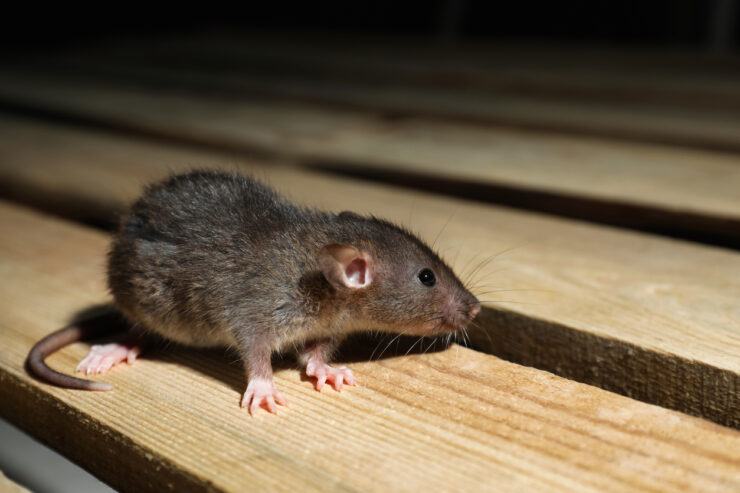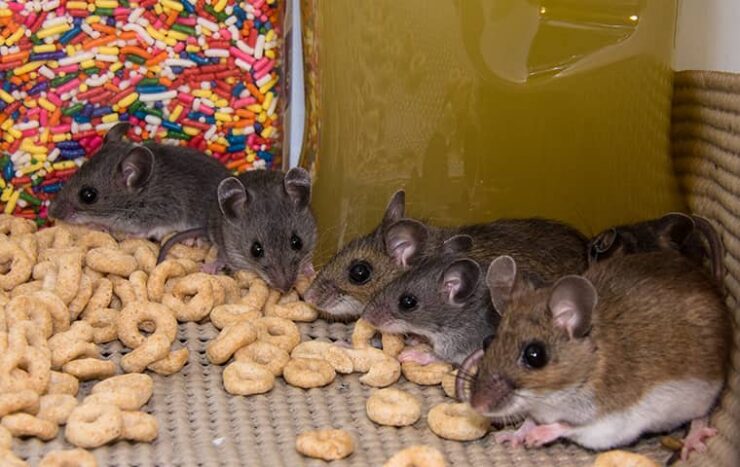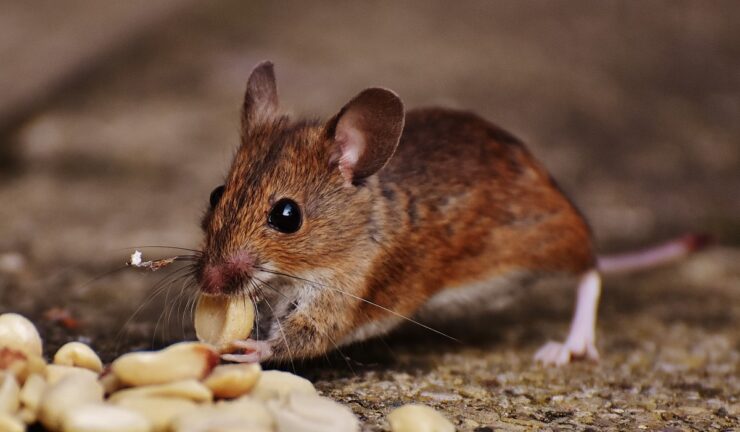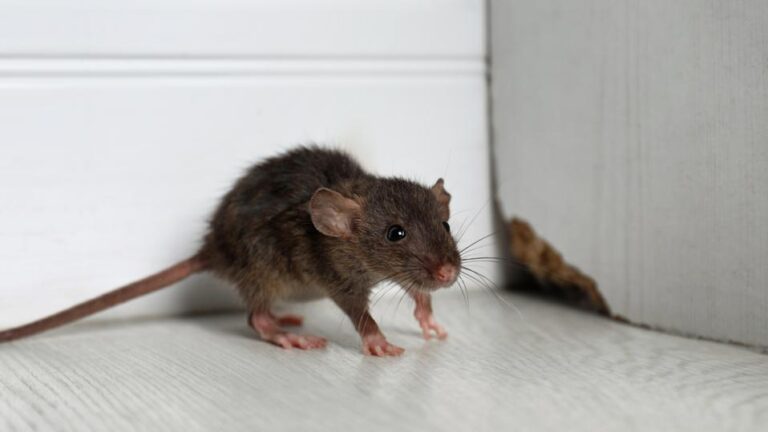From scampering in the walls at night to leaving droppings in your cupboards—mouse and rat infestations don’t bring a lot of cheer to your home. If you’re looking for practical tips on how to prevent or get rid of a rodent problem, this blog post has you covered. Think of it as the pest-control manual your home has been waiting for!
Identifying a Mouse & Rat Infestation
The first step in controlling a mouse or rat infestation is to properly identify the type of rodent. Mice and rats look similar in size and shape, but they have different behaviors, habitats, and food preferences. A mouse infestation can often be spotted by its small round droppings or droppings with tapered smoothed ends while rat droppings appear more pointed at the ends. Seeing nest material inside drawers and on shelves can provide evidence of an infestation as both rodents are known to build nests in homes.

Mice are usually identified by their thin bodies, small ears, triangular face shape and tail-length being slightly shorter than its body. They tend to have a strong preference for grains making them more likely to be found near pantries or kitchen cupboards. If you suspect a mouse or rat infestation in your home, consider reaching out to a reputable service for rodent control in Los Angeles for assistance.
In contrast, rats have a heavier body with stocky legs and larger ears leading to a blunt face shape – their tails are noticeably longer than their body length, typically longer than 8 inches long. Rats will also gnaw through wood and wires if given the opportunity making them more destructive for property/habitats; with this being said, it’s important to inspect any cracks or holes seen in the home to determine if any activity is present. Rats tend to prefer protein-rich foods but they will also consume grains when available making it important that all food sources are kept secure from access by rats or mice.
Reasons for Mouse & Rat Infestations

These infestations can be a nuisance as well as a health hazard. Understanding why they are attracted to your home and what you can do to address the problem is key in keeping them away.
Mice and rats need four basic resources: Food, water, shelter, and easy access points. Your home provides all four— often unintentionally. Common sources of food include pet food, bird seed, garbage cans, pantries and storage closets that contain food of any kind. Water can come from water bowls left out for pets or from cockroaches who are walking around with moisture from moisture-rich places like faucets, toilets or bathtubs – a perfect place for rodent infestation. Shelter often comes in the form of cracks, crevices or small spaces found between walls, cabinets and drawers that are left accessible to these pests. All these resources combined with entry points such as unsealed windows and doors contribute to inviting mice and rats into your home.
Prevention & Deterrent Tips

Prevention is the best way to avoid an infestation of mice and rats in your home. Taking preventive measures before you are forced to call in pest control services can not only save you money, but also save you from the stress, anxiety and mess associated with dealing with mice or rat infestations. Here are some tips for preventing a mouse or rat problem:
- Fix any holes or cracks in the walls, floors or around windows, doors and pipes that would provide access for rodents into your home.
- Install door sweeps on exterior doors to keep them from entering through the gaps at the bottom of doors.
- Make sure that all food scraps and garbage are stored properly in tightly secured bins both inside and outside your home.
- Keep firewood stacks away from your home and clear away any debris piles around your basement area where rodents may seek shelter.
- Keep shrubs trimmed back away from your house, so they can not jump onto roofs or hide out near windows.
- Install an ultrasonic repeller device to emit sound frequencies tuned to deter rodent activity near walls, under sinks and other common entry points into a home.
- Talk to an experienced exterminator about baits and traps that can be used in areas where infestation is likely to occur such as sheds, garages, basements etc., as well as ways to reduce future exposure via exclusion methods such as screens on vents etc..
Professional Extermination Options

Another effective and recommended way to control a mouse or rat infestation is to hire a professional pest control company. Professional exterminators can use a variety of integrated pest management (IPM) strategies, including trapping, baiting and exclusion.
Using IPM strategies is an effective way to target the source of the rodent problem and prevent it from coming back.
- Trap placement is important for successful mouse and rat control. Around 20 traps should be placed on all levels of the house, including subfloors and attics, in order to capture as much of the population as possible.
- Baiting can also be used for controlling rodent populations in areas with low risk of secondary poisoning or continuous exposure to rodents (i.e., baiting should never be used near food preparation areas).
Exclusion methods are another way to combat mice & rats at home. Sealing off entry points like cracks in walls is an effective preventive measure, preventing them from entering your home. However, this method may not always be practical since it may require removing permanent parts of the building structure like window sills or walls which can be labor-intensive and costly depending on where rodents are gaining access into your home.
Conclusion
By following the above preventative measures, you should be successful in keeping both rodents and other pests away from your home. It is important to remember that rodents and other insects are more attracted to clutter, darkness, and dampness. Therefore, by creating a light and clean environment inside your home and keeping food securely stored away, you can ensure that mice and rats stay out.
Additionally, if you find any signs of pest activity in or around your home, immediate action must be taken by calling a professional pest control team to have the infestation treated correctly.

